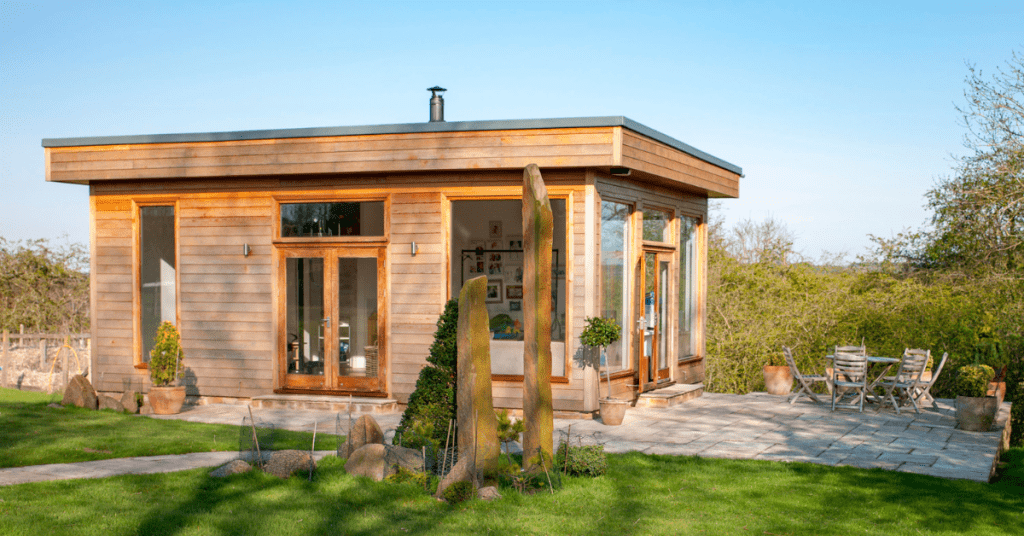Are you considering working from home permanently and thinking about installing a garden office? If so, you may want to consider the tax implications.

A purpose-built garden office could be the solution for many people thinking about relocating permanently and running their business from home. Indeed, the pandemic will have forced working from home on many people with some embracing this change. But there are tax considerations of building your own purpose-built garden office at home.
It will be permissible for the initial cost of the structure and any other associated costs such as planning costs, architect fees and legal fees to be paid in full by the business. However, these costs will not qualify for tax relief as they will be treated as capital costs. VAT charged on these costs can be recovered in full if the garden office is intended for 100% business use. But if there is an intention for private use as well as business use, then the private proportion of the VAT should not be reclaimed.
Whilst the cost of the structure itself doesn’t attract tax relief through capital allowances, there are certain elements of the build that do attract capital allowances e.g., installation and supply of power, heating, air conditioning and thermal insulation. New fittings and fixtures within the structure will also benefit from capital allowance reliefs.
Once the garden office is up and running, ongoing costs can be paid by the business and it can reclaim 100% VAT on all costs allocated as running costs e.g., light and heat, as well as redecoration and repair costs – if there is 100% business use.
If you intend on using your garden office for personal affairs, such as somewhere for your children to play, a guest room for visitors, or even something as simple as a place for you to relax and read a book at the weekend, be aware that tax relief will be restricted to account for personal costs.
Even if you have genuinely installed a garden office for the sole use of working from home, it can be extremely difficult to prove to HMRC that you do not intend to use the outbuilding for any personal matters whatsoever.
What if you move?
There will be implications if you move home. Capital Gains Tax (CGT) does not usually apply to a primary residence when it is sold. However, it may apply if part of a residence is used solely for business. For example, if a garden office covers 3% of the total floor area, then 3% of the gain when the property is sold might be subject to CGT.
One final consideration is payment of business rates. You may find that rates are assessed on the building if there is 100% business use, and this should be checked with the relevant local authority. If the space is used for private use too, then business rates will not be applicable. You might also wish to check your insurance cover applies to the building too.
KEY FACTS:
- Tax relief cannot usually be claimed on the cost of a garden office building
- However, tax relief can be claimed on furnishings and equipment used in the building
- Capital allowances can be claimed on thermal insulation and some wiring/plumbing
- Tax relief can be claimed on running costs, such as heating, lighting and repairs
- VAT can be reclaimed on the costs of the building itself and the ongoing running costs
As always, information relating to tax on our blog is generalised and does not constitute tailored advice. If you are considering investing in a garden office or outbuilding to be used for your business, we are happy to advise you on your options – each individual and each company’s situation is unique.
